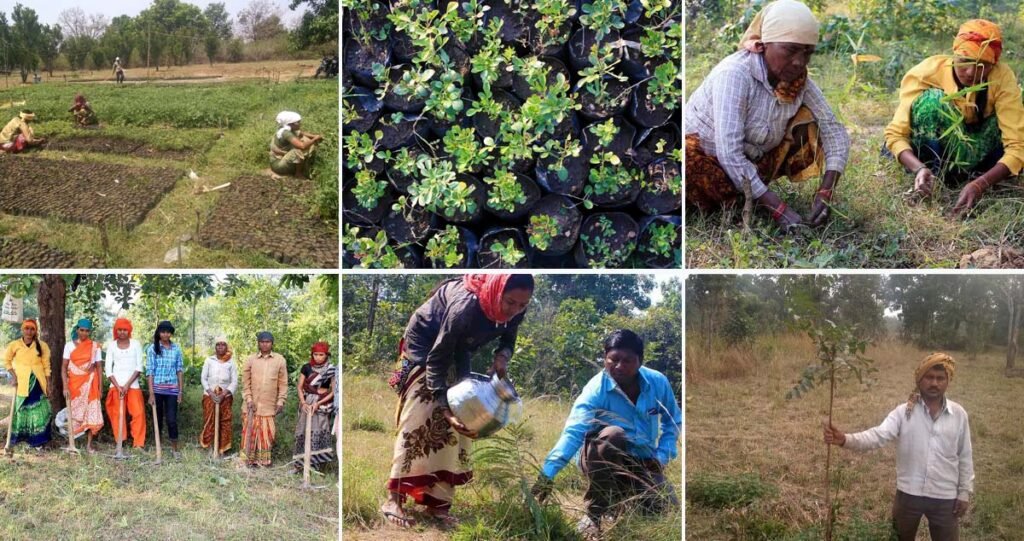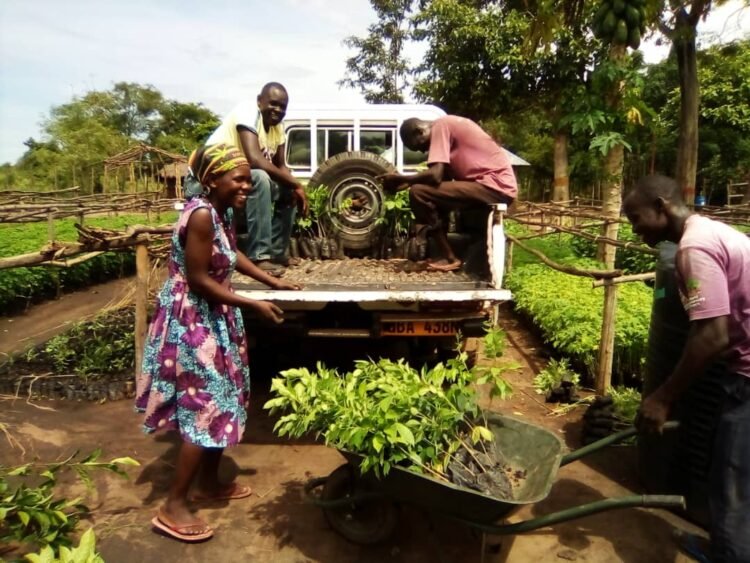By Bikrant Tiwary
One sentence that stuck with me from the UN Climate Summit in 2014 is ‘there is no plan B as there is no planet B’. As Ban-ki-Moon, the then-Secretary-General, spoke these words, he also reminded us of the need to “galvanise our actions” and harness the people’s “power to change”.
Since our formative years, we have been taught that the environment plays a key role in healthy living and the existence of life on Earth. This world is home to a wide range of living organisms, all of which rely on the environment for food, water, air, resources, and other necessities. Despite the fact that ‘Environmental Studies’ is an important element of the curriculum in most schools and education systems, we have not been effective in instilling in individuals the necessity of man-environment cohabitation. As a result, we frequently become engrossed in the frenzy of competition and advancement, oblivious to anything we may be stepping on in our quest for new horizons of growth and change.
‘Where does the gap between man and environment lie, and can it ever be bridged?’ I question myself frequently. I always come up with the same answer: this gap will dissolve if we make the environment a major factor to consider when taking action or making a decision, just as we consider other factors like rationality, risk and reward, relevance, and so on. One question we should ask ourselves is, ‘How will my choice affect the environment?’
Extreme weather events, urban air pollution, and plastic waste poisoning of the oceans have all enhanced awareness that human civilization is facing an existential environmental crisis. We’ve seen enough unforeseen natural disasters and diseases to realise that the root of the problem is our attitude towards the environment and our unwillingness to take meaningful and immediate action. We have used everything on Earth for our own benefit and are about to enter a new phase, believing that sustainability can be achieved by utilising nature more intelligently and controlling it better.
While sustainability has the potential to improve our relationship with the planet, we must first learn to live in harmony with life on Earth by respecting the land, oceans, and atmosphere from which everything is derived. To enable this new relationship to evolve, we must use our education, knowledge, creativity, and invention to promote transformation in all areas of society, redefining sustainability in terms of all life on Earth.
Rising temperatures and climate change cause changes that affect the entire ecosystem and put multiple species in jeopardy of extinction. Efforts to reforest, control pollution, and prevent environmental degradation are actively being taken because we have seen that biodiversity needs to be protected to maintain the lifecycle of ecosystems. The sun provides light for the plants. The plants are food for the animals that are in turn consumed by other animals. Therefore, destroying the environment would destroy the entire food chain system as well.
This year’s theme for World Earth Day is “Invest in Our Planet,” which is yet another initiative to raise awareness about the health of the environment and the urgent need to invest in its improvement for long-term benefits. The need for environmental restoration will be emphasised until we have reevaluated, reformed, and redefined our relationship with the planet and all of its resources.

Investing in the environment can begin with simple actions and progress to supporting companies that are truly green and environmentally conscious. Individuals, governments, and even businesses must come together to build a powerful partnership in order to effect a significant change in the environment and planet.
By rewarding citizens, corporations, and institutions to create and innovate, governments can open new opportunities. Individuals are responsible for holding businesses, governments, and others accountable and supporting their efforts when they bring about significant changes in belief systems and purchase patterns.
Individuals can also make a contribution to the environment by living a sustainable lifestyle. This does not imply that you must only buy from environmentally friendly companies or invest in electric automobiles. You are preserving the earth in unimaginable ways if you choose to make deliberate and thoughtful choices every day. Shopping with care, not hoarding products, conserving energy, planting trees, reusing old bags/paper/books/plastic, creating cleaning agents and detergents at home, carpooling, and walking are all examples of living a sustainable lifestyle.
Planting trees is one of the best ways to protect our environment and the planet at large. As the CEO of an organisation that has been planting trees for over 10 years, I have witnessed how trees can bring about a holistic change in the environment. The trees we have planted in different parts of the country for varied purposes such as Trees for Wildlife, Trees for Tribal Communities, Trees for Rivers, Trees for cities and more have shown remarkable results. All the projects have contributed to an increase in green cover, restoration of wildlife habitats, conservation of water table, enhancement of biodiversity, carbon sequestration, and generated employment for rural communities.
Let us take a moment to look at the things around us: food, furniture, clothing, and so on. How will we be able to enjoy the luxury of these things if our forests are destroyed, our air and water are contaminated, and our land continues to degrade? To protect ourselves, we must protect our environment and natural resources.
We watched nature regenerate in spectacular ways after the COVID-19-induced pandemic had shut down all work and activity; another lesson of how we need to be mindful of our activities so that we can feel the riches of nature even when there isn’t a lockdown. Our activities have a direct impact on our planet’s health, and vice versa. Taking care of the environment should come naturally to us. We have seen nature’s wrath, and the only way to protect ourselves is to preach kindness to Mother Nature, just as we teach our children to be kind to one another. There is no other remedy to our planet’s declining health but ourselves!
(Author: CEO of Grow-Trees)







